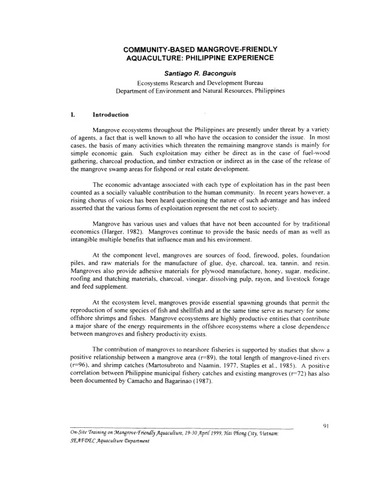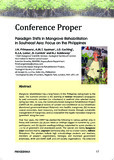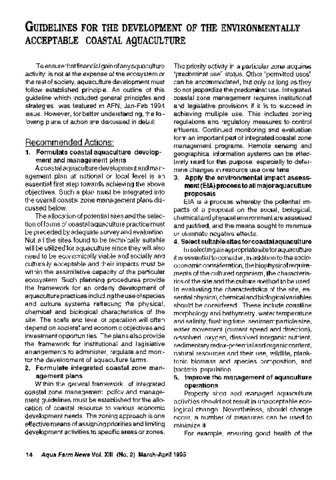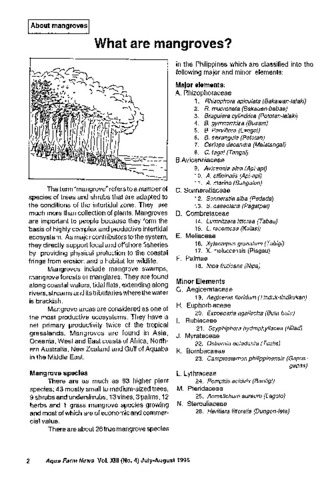Community-based mangrove-friendly aquaculture: Philippine experience
Share
Abstract
This paper discussed two mangrove-friendly aquaculture technologies that will not only protect the coastal and mangrove ecosystem but could also increase the income of the coastal communities not only from the forest products but also from fish, shellfish, and crab production. Moreover, the technologies will not only serve as livelihood but also help in promoting the conservation of biodiversity.
Suggested Citation
Baconguis, S. R. (2000). Community-based mangrove-friendly aquaculture: Philippine experience. In Y. Tadokoro, V. T. Sulit, & R. B. Abastillas (Comps.), Technologies in Mangrove-Friendly Aquaculture. Final Report of and Papers Presented to the On-Site Training on Mangrove-Friendly Aquaculture, Hai Phong City, Socialist Republic of Vietnam, 19-30 April 1999 (pp. 91–102). Tigbauan, Iloilo, Philippines: Aquaculture Department, Southeast Asian Fisheries Development Center.
Subject
Koleksi
Related items
Showing items related by title, author, creator and subject.
-
Paradigm shifts in mangrove rehabilitation in Southeast Asia: Focus on the Philippines
Primavera, Jurgenne H.; Guzman, Armi May T.; Coching, Jofel D.; Loma, Rona Joy A.; Curnick, David; Koldewey, Heather J. (Department of Environment and Natural Resources - Ecosystems Research and Development Bureau (DENR-ERDB), 2014)Mangrove rehabilitation has a long history in the Philippines dating back to the 1930s. The standard practice is the planting of bakhaw Rhizophora propagules by paid community members (or volunteers) in seafront sites ... -
Guidelines for the development of environmentally acceptable coastal aquaculture
Southeast Asian Fisheries Development Center, Aquaculture Department (Aquaculture Department, Southeast Asian Fisheries Development Center, 1995)The paper presents some recommendations for the development of the environmentally acceptable coastal aquaculture such as: 1) Formulate coastal aquaculture development and management plans, 2) Formulate integrated coastal ... -
What are mangroves?
Southeast Asian Fisheries Development Center, Aquaculture Department (Aquaculture Department, Southeast Asian Fisheries Development Center, 1995)The article presents about mangroves and its value to the ecosystem. The different species in the Philippines and mangroves coping mechanisms to the environment are also presented.





